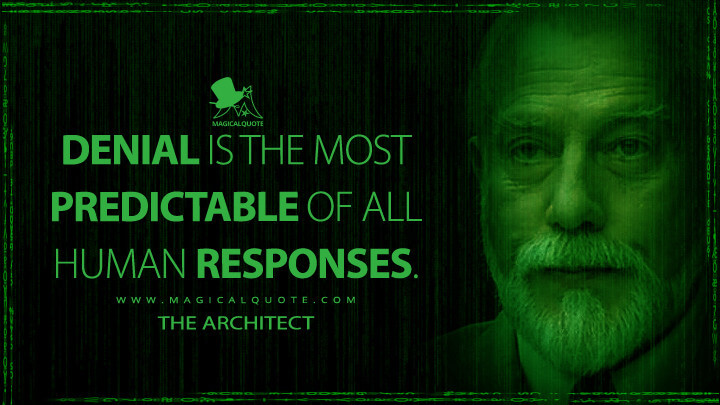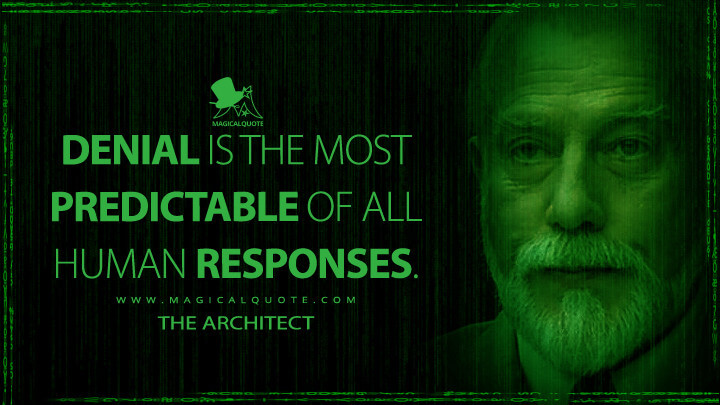Definition and Function:
Psychological Impact:
Coping with Trauma: Denial can serve as an immediate, temporary shield against the full impact of traumatic events. For example, someone might deny the death of a loved one as a way to manage overwhelming grief.
Self-Protection: It helps protect self-esteem or one's sense of identity. If acknowledging certain facts would lead to a significant negative view of oneself or one's actions, denial can prevent this self-image from being shattered.
Managing Cognitive Dissonance: When new information clashes with existing beliefs or values, denial can be used to manage the discomfort of cognitive dissonance, preventing a need for immediate change in behavior or thought.
Examples:
Health Issues: A person might deny they have a serious illness despite clear medical evidence, as accepting the diagnosis could lead to fear or a significant lifestyle change.
Relationship Issues: Someone might deny that their partner is unfaithful due to the emotional turmoil that such an acknowledgment would cause.
Substance Abuse: Individuals with substance use disorders might deny or minimize their addiction to avoid the implications of needing help or changing their behavior.
Consequences:
Short-term vs. Long-term: While denial can provide short-term relief, in the long term, it can prevent individuals from dealing with problems, leading to more severe consequences like deteriorating health, unresolved grief, or perpetuation of harmful behaviors.
Social and Relational Impact: Persistent denial can strain relationships, as others might feel frustrated or invalidated by the denial of obvious truths.
Psychological Growth: Over-reliance on denial can stunt personal growth and emotional maturity, as it prevents learning from experiences or adapting to new information.
Moving Beyond Denial:
Therapeutic Approaches: Therapy often works by gently confronting denial, helping individuals to gradually accept realities in a supportive environment. Techniques like cognitive-behavioral therapy can help in restructuring thoughts and beliefs.
Self-Reflection: Encouraging self-reflection can lead to acknowledgment of denied realities, often through journaling, meditation, or discussions with trusted individuals.
Education and Awareness: Increasing awareness about how denial works can help individuals recognize when they're using this defense mechanism and consider healthier ways to cope.
Denial, while protective in the short term, can be detrimental if it prevents confronting and resolving underlying issues. Understanding and addressing denial is crucial for psychological health and personal development.

Matrix: The Matrix represents a controlled, simulated reality where humans are kept in a state of blissful ignorance. Those who are freed from it must confront a harsh, often brutal external reality, which many find too difficult to accept.
Gaza: The situation in Gaza can be seen as a form of control where the blockade and restrictions create a kind of "Matrix" - an environment where normal life is heavily constrained, leading to a form of existential confinement. The physical and political realities are often so stark that they parallel the harsh awakening from the Matrix.
Matrix: The Architect's comment about denial and the choice not to free those beyond a certain age due to their inability to accept the truth mirrors the selective nature of Morpheus's red pill/blue pill offer. It suggests that once people reach a certain maturity or have lived too long within the system, the shock of truth can be too much to handle.
Gaza: Similar dynamics can be observed where long-term conflict, trauma, and propaganda can lead to a form of collective denial or acceptance of the status quo. The daily reality for many in Gaza involves coping mechanisms that might resemble denial, where accepting the full extent of their situation could be psychologically overwhelming or lead to despair.
Matrix: Characters like Neo represent those who resist the system, seeking to awaken others to the truth, even at great personal risk. This awakening involves a fight against the control mechanisms of the Matrix.
Gaza: Resistance movements, whether through political activism, journalism, or direct action, can be seen as efforts to "awaken" global awareness to the realities in Gaza, challenging narratives and control structures. However, the complexity of the conflict means that what one side sees as resistance, another might view as aggression or terrorism.
While these parallels are not exact and the contexts differ significantly, both narratives explore how humans navigate or are trapped by systems of control, the psychological impact of living within or confronting these systems, and the struggle between illusion and reality. This comparison underscores the universal themes of freedom, truth, and human resilience or fragility when facing overwhelming odds.
